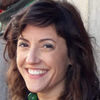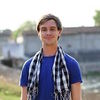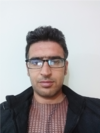Knowledge fuels change - Support energypedia!
For over 10 years, energypedia has been connecting energy experts around the world — helping them share knowledge, learn from each other, and accelerate the global energy transition.
Today, we ask for your support to keep this platform free and accessible to all.
Even a small contribution makes a big difference! If just 10–20% of our 60,000+ monthly visitors donated the equivalent of a cup of coffee — €5 — Energypedia would be fully funded for a whole year.
Is the knowledge you’ve gained through Energypedia this year worth €5 or more?
Your donation keeps the platform running, helps us create new knowledge products, and contributes directly to achieving SDG 7.
Thank you for your support, your donation, big or small, truly matters!
Difference between revisions of "Webinar on Sustainable Energy for Powering Household and Community Lighting Needs in Humanitarian Settings"
***** (***** | *****) m Tag: 2017 source edit |
***** (***** | *****) Tag: 2017 source edit |
||
| Line 1: | Line 1: | ||
| + | {{Back to HE Webinar}} | ||
| + | |||
<p style="text-align: center"></p> | <p style="text-align: center"></p> | ||
{{#widget:YouTube|id=7k2JKXGhp0Y|height=300|width=600}} | {{#widget:YouTube|id=7k2JKXGhp0Y|height=300|width=600}} | ||
Latest revision as of 09:11, 5 October 2021
Which quality solar products for household use are on the market? How can humanitarian actors assess which lighting solutions are needed for households and communities in their intervention? Presentations by Lighting Global and Oxfam will shed a light on these questions. In two case studies, Practical Action and Mercy Corps will share their experience from a community needs assessment in Rwanda, and from delivering quality solar products via distribution and market based approaches in Afghanistan.
Presentation
Speakers
Nicole S. Bouris, Lighting Global
Nicole S. Bouris is part of Lighting Global (IFC) business development team. As part of her job she also leads the program’s workstream in displacement settings. She has developed the program’s strategy on how to engage in such situations, worked on an assessment of the energy situation of Syrian refugees in Lebanon, contributed to IFC’s strategy on forced displacement, and with Chris she assists humanitarian agencies on their energy programs. Before joining IFC, Nicole worked for Trine in Kenya, UNICEF in Lebanon and co-founded a startup in Milan.
Christopher Carlsen, Lighting Global
Christopher Carlsen leads policy support activities for the Lighting Global Quality Assurance Program. In his current role, Christopher engages with national governments, regional bodies, development partners and the private sector to bolster an internationally harmonized quality assurance framework for off-grid energy systems. Since joining the Quality Assurance team in 2009, Christopher has implemented a breadth of activities, including product testing, field and lab research, policy development, and direct support for a diverse set of stakeholders, including the humanitarian aid sector.
Rachel Hastie, Oxfam Rachel has worked for Oxfam GB for more than 16 years in field and headquarter posts implementing and supporting humanitarian programmes. Since 2016 she has been the Protection Team Leader for the Global Humanitarian Team.
Cecilia Ragazzi, Mercy Corps Cecilia has a 10-year experience in the humanitarian and development sector covering advisory, management and consulting positions in diverse cultural and geographical contexts, including Bangladesh, Haiti, Afghanistan, Libya, Jordan, Philippines, Democratic Republic of Congo, Niger, Nepal, Indonesia, Senegal, and Mali. She started nurturing her interest in women economic empowerment through renewable energy managing a multi-country and multi-partner EC program in the Sahel region (Mali, Senegal and Niger). Cecilia is part of Mercy Corps’ Technical Support Unit Environment Team as Senior Advisor for Humanitarian Partnerships on Energy Access. She is based in Mercy Corps’ Edinburgh office and she supports country teams in humanitarian settings across the world.
Philip Sandwell, Practical Action
Dr Philip Sandwell is a Research Associate at Practical Action and Imperial College London where he researches the implementation of energy projects in developing countries and humanitarian settings. For the past two years he has worked on the Renewable Energy for Refugees Project, a partnership between Practical Action and UNHCR, which provides sustainable energy solutions to three refugee camps in Rwanda and in urban settings in Jordan. He holds a PhD in Physics from Imperial College London, which focused on techno-economic modelling of minigrids, and a master's degree in Theoretical Physics.
Baryalai Sadiqi, Mercy Corp
Baryalai Sadiqi holds a Bachelor's Degree in Civil Engineering from University of Pune, India on Environmental Engineering. He has been working with Mercy Corps in its native Afghanistan for more than 7 years, contributing to the set-up of the Renewable Energy Department. He is specialized in solar PV systems, including design, implementation, supervision, and management. Presently, he is Program Manager for the expanding Renewable Energy portfolio for Mercy Corps Afghanistan.
Resources
- The State of Sustainable Household Energy Access in Refugee Settings in Uganda: Survey Findings in Rhino Camp Settlement and Imvepi Settlement, Arua District, West Nile Region (EnDev 2019)
- Market Analysis: Energy Access for Syrian Refugees in Lebanon (Lighting Global): This report examines the current solar energy sector in a few select refugee settlements in Lebanon and offers a few insights into the potential market for solar lighting products.
- Procurement of Stand-alone Solar Kits for Humanitarian Aid (Lighting Global):This Technical Note provides guidance on procuring pico-solar and solar home system (SHS) kits for humanitarian aid. It presents the relevance of the Lighting Global Quality Standards, key procurement considerations, and a step-by-step procurement guide
- Solar Home System Kit Quality Standards (Lighting Global): This document describes the Quality Standards for Solar Home System Kits, which set a baseline level of quality, durability, and truth in advertising to protect consumers. Kits covered by these Standards must have a peak power of 350 W or less and a DC voltage of 35 V or less.
- Pico-PV Quality Standards (Lighting Global): These Standards apply to products with power up to and including 10 W.
- Quality Matters (Lighting Global): In 2017, Lighting Global tested 17 top-selling, non-quality verified solar products from retail stores in Ethiopia, Kenya, Myanmar, Nigeria, and Tanzania.
- Benefits of Harmonizing Test Methods and Quality Standards (Lighting Global): This Technical Note explains the importance and benefits of an internationally harmonized quality assurance framework for small scale solar photovoltaic (pico-PV) products. Benefits are outlined for specific stakeholder groups, and a summary of the Lighting Global Quality Assurance (QA).
- Shining a Light: How lighting in or around sanitation facilities affects the risk of gender-based violence in camps. Oxfam & WECD (2018)
Organizers


























